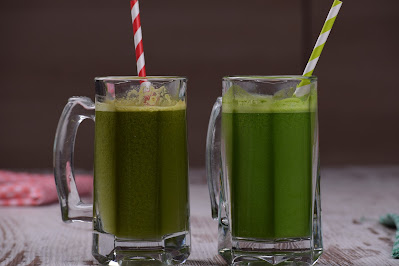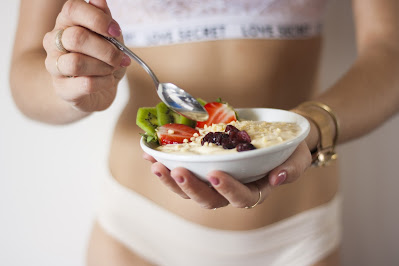A detox diet is a type of diet that is designed to help the body eliminate toxins and waste products. The idea behind a detox diet is that by consuming specific foods and beverages, the body can rid itself of harmful substances, such as pollutants, chemicals, and processed foods, that can build up over time and contribute to various health issues.
While some detox diets may involve fasting or severely restricting calorie intake, others may focus on consuming specific foods and beverages, such as fruits, vegetables, herbal teas, and water. Some detox diets may also involve supplements, such as probiotics and digestive enzymes, to support gut health.
A detox diet can help with weight loss in several ways:
Reduced calorie intake:
Many detox diets involve consuming lower calorie foods, such as fruits and vegetables, which can help reduce overall calorie intake and contribute to weight loss.
Reduced inflammation:
Certain foods and beverages, such as green vegetables, berries, and herbal teas, contain antioxidants and anti-inflammatory compounds that can help reduce inflammation in the body. Chronic inflammation can contribute to various health issues, including weight gain.
Improved gut health:
A detox diet that focuses on gut-friendly foods and supplements, such as probiotics and digestive enzymes, can help improve gut health. A healthy gut can support nutrient absorption and contribute to weight loss.
Improved metabolism:
Some detox diets may involve consuming foods and beverages that are known to support metabolism, such as green tea and spicy foods. A faster metabolism can help burn more calories and contribute to weight loss.
It's important to note that a detox diet should be done under the guidance of a healthcare professional, as it can lead to nutrient deficiencies if not properly balanced. Additionally, while a detox diet may be effective for short-term weight loss, it's not a sustainable long-term weight loss solution. To maintain weight loss, it's crucial to adopt a healthy and balanced diet and lifestyle habits.
Learn All About Weight Loss Through The 1200 Calorie Liquid Diet. Burn Belly Fat, Melt Body Fat and Lose Weight Without Starvation, Painful Exercise and Lethargy.
Thursday, 2 March 2023
How Does A Detox Diet Help In Fat Loss
How Does A Liquid Diet Help In Weight Loss
A liquid diet is a type of weight loss diet that involves consuming only liquids, such as smoothies, juices, soups, and shakes. Some people may choose to follow a liquid diet for a short period, such as a few days or weeks, while others may use it as a long-term weight loss strategy.
A liquid diet can be helpful for weight loss for several reasons. Firstly, liquids tend to be less calorie-dense than solid foods, which means that consuming a liquid diet can help reduce overall calorie intake. Secondly, liquid diets can be easier to digest than solid foods, which can be helpful for people with digestive issues or those who have undergone certain medical procedures.
However, it's important to note that a liquid diet should be done under the guidance of a healthcare professional, as it can lead to nutrient deficiencies if not properly balanced. Here are some ways a liquid diet can help with weight loss:
Reduced calorie intake:
One of the main benefits of a liquid diet is that it can help reduce calorie intake. Liquid meals tend to be lower in calories than solid foods, which can result in a calorie deficit and ultimately lead to weight loss.
Portion control:
Liquid diets often involve pre-packaged meals or shakes, which can help with portion control. It can be challenging to estimate portion sizes with solid foods, but with pre-packaged meals or shakes, you know exactly how much you are consuming.
Detoxification:
Many liquid diets contain ingredients that are known to support detoxification, such as green vegetables and fruits. Detoxification can help eliminate toxins from the body and improve overall health.
Reduced bloating:
Consuming a liquid diet can help reduce bloating and water retention, which can make you feel lighter and less sluggish.
Improved digestion:
Liquid diets are easier to digest than solid foods, which can be helpful for people with digestive issues. Improved digestion can lead to better nutrient absorption and ultimately support overall health.
However, it's important to note that a liquid diet is not a sustainable long-term weight loss solution. It's crucial to reintroduce solid foods gradually and to make sure your diet is nutritionally balanced to avoid nutrient deficiencies. Additionally, a liquid diet may not be appropriate for everyone, such as those with certain medical conditions or those who are pregnant or breastfeeding. It's always best to consult with a healthcare professional before starting a liquid diet or any other weight loss program.
Daily Calorie Requirement For Men And Women
The daily calorie requirement for men and women varies depending on several factors, including age, height, weight, physical activity level, and ethnic background. Here is a general overview of the recommended daily calorie intake for men and women based on ethnicity:
African Americans:
According to the US Department of Health and Human Services, African American men and women require an average daily calorie intake of 2,500 and 2,000, respectively.
Asians:
The recommended daily calorie intake for Asian men and women varies based on their specific country of origin, as well as their age, height, and weight. Generally, the range falls between 1,800-2,500 calories per day.
Caucasians:
The recommended daily calorie intake for Caucasian men and women also varies based on their age, height, weight, and physical activity level. However, the average daily calorie intake is around 2,500 for men and 2,000 for women.
It's important to note that these are general recommendations and may not apply to everyone. It's always best to consult with a healthcare professional to determine your specific calorie needs based on your individual health status and lifestyle factors.


